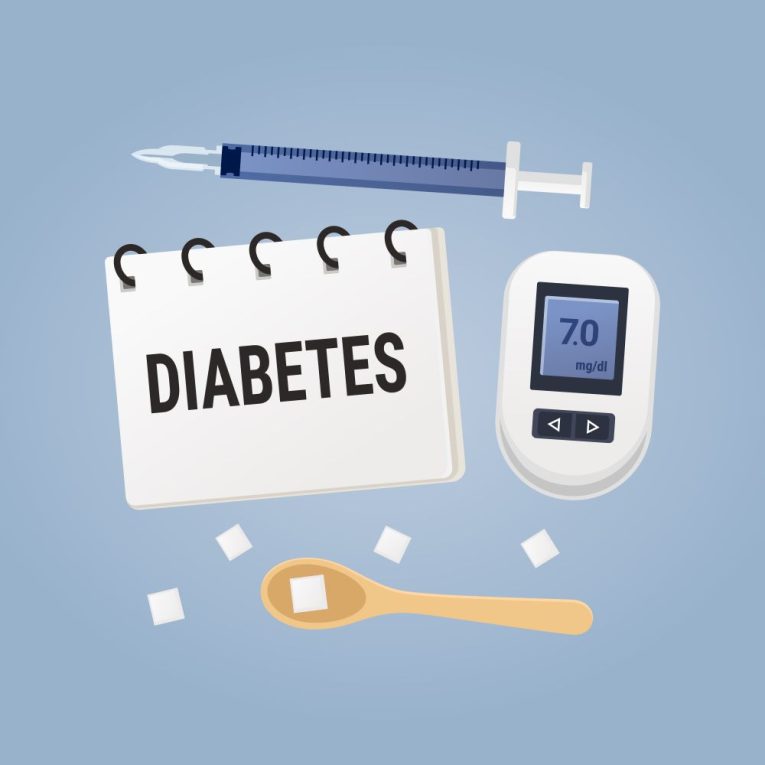Diabetes mellitus, commonly known as diabetes, is a chronic condition that affects millions of people worldwide. It occurs when the pancreas is no longer able to make insulin or when the body cannot make good use of the insulin it produces. Insulin is a hormone that regulates blood sugar. Hyperglycaemia, or high blood glucose, is a common effect of uncontrolled diabetes and, over time, leads to severe damage to many of the body’s systems, especially the nerves and blood vessels, leading to an increased risk of heart disease, stroke, and heart failure.
What is Diabetes Mellitus?
Diabetes Mellitus encompasses a group of metabolic diseases characterized by high blood glucose levels over a prolonged period. There are three main types of diabetes: Type 1, Type 2, and gestational diabetes. Each form of diabetes has unique causes, symptoms, and treatments.
- Type 1 Diabetes: This type is an autoimmune condition where the body’s immune system attacks and destroys the insulin-producing cells in the pancreas. It’s often diagnosed in children and young adults.
- Type 2 Diabetes: This type affects the way the body processes blood glucose levels. With this type, the body either resists the effects of insulin — a hormone that regulates the movement of sugar into your cells — or doesn’t produce enough insulin to maintain a normal glucose level. It’s more common in adults but is increasingly seen in children, teens, and young adults.
- Gestational Diabetes: This type of diabetes occurs during pregnancy and usually disappears after giving birth, but it leads the mother to a higher risk of developing type 2 diabetes later in life.
Halle Berry states, “I do not love to work out, but if I stick to exercising every day and put the right things in my mouth, then my diabetes just stays in check.”
(https://www.brainyquote.com/lists/topics/top-10-diabetes-quotes)
Diabetes Symptoms
The symptoms of diabetes may include:
- Increased thirst and frequent urination
- Extreme hunger
- Unexplained weight loss
- The presence of ketones in the urine
- Fatigue
- Blurred vision
- Slow-healing sores
- Frequent infections, such as gums or skin infections and vaginal infections
If you experience these symptoms, consult a healthcare professional for evaluation and possible diagnosis.
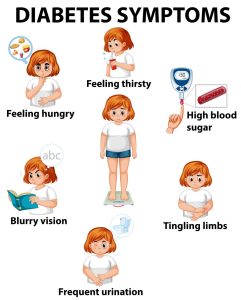
Diabetes Risk Factors
Certain factors have a higher risk of developing diabetes:
- Family history of diabetes
- Being overweight or obese
- Physical inactivity
- Age (risk increases with age)
- High blood pressure
- Abnormal cholesterol and triglyceride levels

Diabetes Diagnosis
Diabetes diagnosis involves testing blood glucose levels. Diabetes tests may include:
- Fasting Blood Sugar Test: Measures your blood sugar after an overnight fast.
- Oral Glucose Tolerance Test: Measures your blood sugar before and periodically after you drink a liquid that contains glucose.
- HbA1c Test: Provides an average blood sugar level over the past 2 to 3 months.
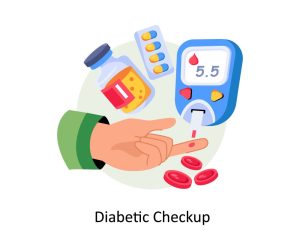
Diabetes Treatment
Treatment for diabetes requires lifestyle changes and medication. Managing diabetes involves:
- Monitoring Blood Sugar Levels: Keeping track of blood sugar levels is crucial for managing diabetes effectively.
- Healthy Eating: A dietitian can help you develop a meal plan that balances your intake of fats, proteins, and carbohydrates and decreases the intake of sugar and refined carbohydrates.
- Regular Exercise: Exercise helps control weight, uses up glucose as energy, and makes cells more sensitive to insulin.
- Diabetes Medication or Insulin Therapy: Some people need medication or insulin injections to manage their diabetes.
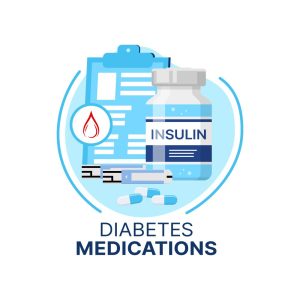
Diabetes Complications:
The complications of diabetes can cause many health problems, such as:
- Heart disease
- Kidney disease: Diabetic Nephropathy
- Eye problems: Diabetic Retinopathy
- Digestion problems: Gastroparesis
- Stroke
- Diabetic foot
- Nerve disease: Diabetic Neuropathy
- Erectile dysfunction
- Skin problems
- Infection
- Dental Problems: Gingivitis or Periodontitis

Managing Diabetes with Omega Hospitals
At Omega Hospitals, we offer a comprehensive diabetes management program with access to top endocrinologists, diabetes educators, dietitians, and support groups. Our dedicated team works together to create a personalized treatment plan tailored to each patient’s specific needs, helping them to control diabetes effectively and improve their quality of life.
Diabetes Prevention Tips
While not all types of diabetes are preventable, you can reduce your risk of type 2 diabetes by-
- Maintaining a healthy weight
- Eating a balanced, healthy diet
- Engaging in regular physical activity
- Monitoring your blood pressure and cholesterol levels
- Not smoking
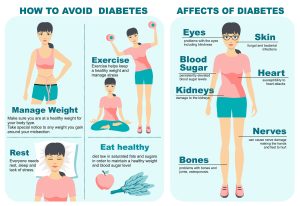
Conclusion:
Controlled diabetes mellitus is possible with the proper treatment and lifestyle adjustments. At Omega Hospitals, our goal is to empower our patients with the knowledge and resources they need to manage their diabetes and prevent complications. If you or someone you know is struggling with diabetes, reach out to us today to see how we can help.

